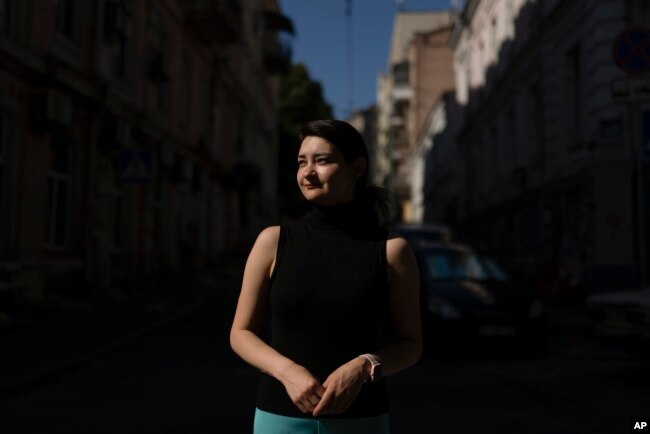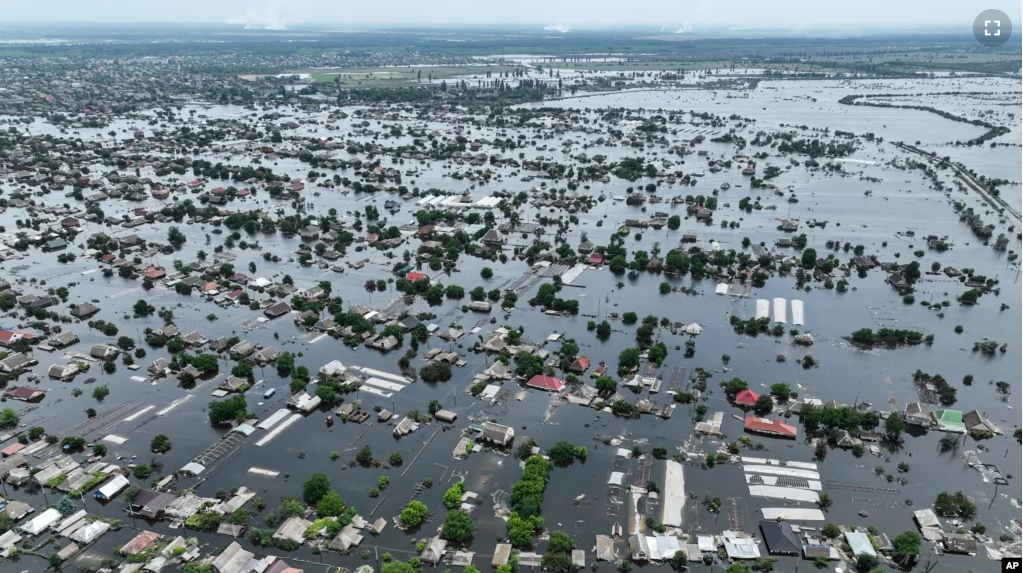For Rima Yaremenko, the 5,000-kilometer journey to escape Russian occupation ended within sight of where it started. The 68-year-old Ukrainian woman crossed three countries over six days only to settle across the river from her seized hometown.
She came a long way by bus through Russia, Latvia, and Poland to be this close. From the Ukrainian-controlled city of Kherson, where she now lives, the outline of Oleshky can be seen. But the community with a prewar population of 25,000 may as well be a world away.
Yaremenko lived under Russia’s rule for 15 months. She dealt with the sounds of war just to be near her home. In June, the destruction of the Kakhovka Dam caused massive flooding and reduced her home to dirt.
She faced a difficult choice: Be homeless as the war continues nearby or take the only way out – a long and unclear journey through Russia. “We didn’t want to go, but once we were flooded, I decided there’s nothing to stay for,” she said.
Hundreds of others left too. They left their flooded homes to travel long distances of occupied land, past checkpoints, and through Russian cities, all to reach the borders of the European Union.

Now beyond the reach of Russian officials, escapees told The Associated Press about their lives under Russian occupation and their escape.
Continuous shelling became too much for those already struggling with homelessness and limited drinking water. Most did not have the money to rebuild. Occupation officials offered $100 to deal with the flooding.
Lana, 43, left Oleshky on June 19 and arrived in Kherson a little over a week later. She said, “My house was unlivable.” She added that water pipes were broken and dirty and there was human waste. She said, “It was impossible to breathe.”
At first, Ukrainians in occupied territories hoped the Ukrainian military would free them. But the longer they remained, the more they feared pressure to get Russian passports.
The AP spoke to nine people who left Oleshky from June 13 to July 1. The only way out of the occupied part of the Kherson area was through Crimea, which Russia took from Ukraine in 2014.
Travelers had to be processed in the town of Armyansk. Phones were inspected, and email passwords were collected. Those suspected of working with Ukrainian forces were questioned or detained, in some cases never to be seen again.
Nelly Isaeva is the director of Helping to Leave, an organization that works remotely to help Ukrainians who want to escape Russian occupation. She said some are unable to pass simply because they lost their documents and have no money.
A woman who remains in Oelshky said life under occupation has become harder over time.
The Russians “began to act more harshly than before,” she said. She did not give her name out of fear for her safety. Russian soldiers now check the documents of locals, for example, when visiting the market.
For that reason, the woman and her family avoid leaving the house. Many people get by on the food that remains after others leave. “They give us their stocks,” she said.
I’m Caty Weaver.
Samya Kullab and Hanna Arhirova reported this story for The Associated Press. Gregory Stachel adapted it for VOA Learning English.
________________________________________________________________
Words in This Story
journey – n. an act of traveling from one place to another
checkpoint – n. a place where people or cars are searched by someone (such as a police officer) before being allowed to continue
access – n. a way of being able to use or get something
harshly – adj. severe or cruel
